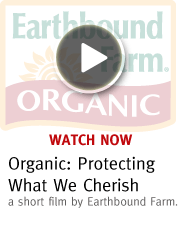Converting to Organic Practices
If you are a grower considering switching to organic farming then you’re probably full of questions. What is the typical process like? How long will it take to complete? What do I need to change from the way I grow my crop now? Is there any additional work that I need to do? What will be the benefits for my company in the future?
In Canada and the United States, for example, there are regulatory procedures which must be followed. In Canada, in 2009, Organic Product Regulations (OPR) were brought in to law under the oversight of the Canadian Food Inspection Agency (CFIA). In the US, the oversight and regulations is provided by the US Department of Agriculture, National Organic Program (USDA/NOP).
In Canada, there are a limited number of Accreditors, approved by the CFIA, that in turn oversee 'certifying bodies' or companies. Below are lists of both the accreditors and the certifying bodies/firms that can be selected by new or current organic growers for the procedures and practices that must be followed to be 'certified organic'.
Conformity Verification Bodies (accreditors):
1. CAEQ - Committee on Accreditation for Evaluation of Quality (CARTV Accreditation Division, formerly CAAQ)
2. COABC- Certified Organic Association of British Columbia
3. IOAS - International Organic Accreditation Service
4. SCC - Standards Council of Canada
5. DAP- German Accreditation System for Testing
Accreditation bodies may apply for recognition by the Canada Organic Office of the Canadian Food Inspection Agency.
Certifying Bodies:
Certifiers accredited to deliver certification services under the 2009 OPR:
Agrior
Argencert
Atlantic Certified Organic Co-operative (ACO)
Australia Certified Organic (ACO)
BCS Öko–Garantie
Bio-Gro New Zealand
Bio-Inspecta
Bioagricert
British Columbia Association for Regenerative Agriculture (BACRA)
CCOF Certification Services
Centre for Systems Integration (CSI)
Consorzio per il Controllo dei Prodotti Biologici (CCPB)
Control Union Certifications
Ecocert Canada
Etko Ekolojyk Tarim Kontrol Organizasyonu
Food Safety
Fraser Valley Organic Producers Association (FVOPA)
Gesellschaft für Ressourcenshutz (GfRS)
Global Organic Alliance (GOA)
Instituto Biodinamico (IBD)
International Certification Services (ICS)
Istituto Mediterraneo Di Certificazione (IMC)
Istituto per la Certificazione Etica e Ambientale (ICEA)
LACON
LETIS S.A.
National Association Sustainable Agriculture Australia (NASAA)
Oregon Tilth
Organic Agriculture Certification Thailand (ACT)
Organic Certifiers
Organic Crop Improvement Association (OCIA)
Organic Food Development Certification Center of China (OFDC)
Organic Producers Association of Manitoba Co-operative (OPAM)
Organizacion Internacional Agropecuaria (OIA)
Pacific Agricultural Certification Society (PACS)
Pro-Cert Canada
QC&I International Services
QMI - SAI Global
Quality Assurance International (QAI)
Quality Certification Services (QCS)
Québec Vrai (OCQV)
Suolo E Salute
Washington State Deptartment of Agriculture (WSDA)
A few simple recommendations for what you, as a farmer planning to transition to organic production should keep in mind are offered below:
One of the first steps that anyone considering switching to becoming a supplier of certified organic product should do is to talk to people that have already successfully undergone the switch. With thousands of newcomers to organic farming in the past decade finding someone local shouldn’t be hard. Facts can help you make a decision but when it comes to speaking to a person that has insight and past experience, they can greatly reduce your level of concern.
After you have made the decision to take the plunge into organic farming you will need to ‘transition’ the land you plan to certify for organic crop production – this period takes three years. During this time, you can still grow cash crops, cover crops or fallow the land, but cash crops will not be certified until this term is completed. An organic certifier must be selected and paid for their oversight and ultimate certification of your land.
Keeping an accurate reporting system on your organic conversion and farming process is also key. To be certified organic you must maintain a detailed record of your transition process in case there is ever a need to find out where a non-organic vector was introduced to your agriculture. Good and diligent record keeping is a pre-requisite for organic farming, so be prepared!
Growing certified organic crops doesn’t need to be more complex than the non-organic way. However, it does require a shift in thinking. For example, instead of relying on pesticides to solve an infestation of insects you have to first examine the possible causes of the problem and try to determine the likely deficiency that existed in the soil or plant that allowed the infestation to take hold in the first place. Then an allowed organic friendly solution can be sought. There are plenty of alternatives and many organic farmers have solved the challenges of their industry by seeking advise from the increasing number of other organic growers and by Certified Crop Advisors (CCAs) and Pest Control Advisors (PCAs) with knowledge of organic inputs and solutions.
Once you’re certified the way you take your product to market will also shift. You will find that there are a growing number of ways that you can generate income from local markets to resellers of organic products that are seeking to fulfill the growing consumer demand. As with any major business shift in strategy you should always plan to expect a few bumps along the way but in the end the results should be worth all your hard effort. |



